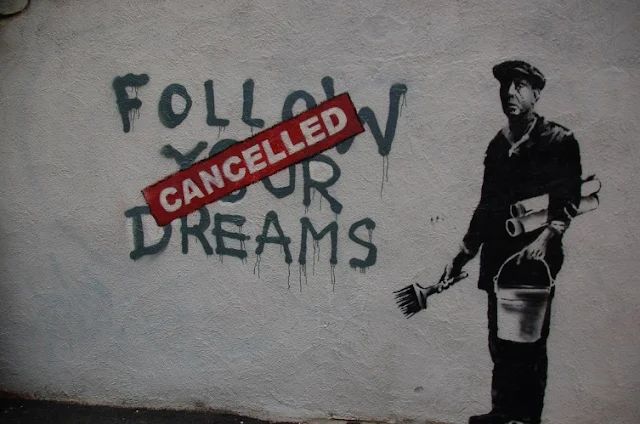Ethnocentrism and the View of Africans
The importance of promoting cultural awareness, understanding, and empathy towards people from different backgrounds in order to reduce ethnocentrism and create a more inclusive and equitable society.
Views of Africans by non-Africans through the centuries were often shaped by limited contact, stereotypes, and misinformation. Ethnocentric Europeans are people who are native to or have origins in the continent of Europe who may judge a culture by their own standards, this is called ethnocentrism.
How Europeans have viewed Africans from the 17th to the 20th centuries.
Ethnocentric Europeans include people from a wide range of ethnic, cultural, and linguistic backgrounds, such as Anglo-Saxons, Celts, Slavs, Germans, Scandinavians, Greeks, Italians, Spaniards, and many others. It is worth noting, however, that the definition of who is considered European can be complex and contested, particularly in the context of migration, identity politics, and cultural diversity.
Ethnocentrism is a concept used to describe the tendency to view one's own ethnic or cultural group as superior to others. This bias can lead to a lack of understanding and respect for other cultures, and can result in discriminatory attitudes and behavior towards people who are perceived as different.
Ethnocentrism can manifest in different forms, such as cultural stereotypes, prejudice, and discrimination. It can also be reinforced by social and economic inequalities, which can create power imbalances between different ethnic or cultural groups.
Reducing ethnocentrism involves promoting cultural awareness, understanding, and empathy towards people from different backgrounds. It is important to recognize and challenge our own biases and assumptions, and to seek out opportunities to learn about and engage with diverse cultures. By embracing cultural diversity, we can create a more inclusive and equitable society.

|
| Hope |
The 17th century refers to the period from 1601 to 1700 in the Gregorian calendar. In the 17th century, Europeans viewed Africans in a range of different ways depending on their geographic and cultural contexts. Africa was still largely unknown to many Europeans, and their views of Africans were often shaped by limited contact, stereotypes, and misinformation.
One major way that Europeans encountered Africans during this period was through the transatlantic slave trade. Africans who were forcibly brought to the Americas were often seen as inferior and were treated as property rather than as human beings. Negative stereotypes about Africans as wild and uncivilized cannibals were used to justify their enslavement and exploitation.
In some parts of Europe, there was a growing interest in African cultures, kings and societies such as the African Kingdoms of Kongo, Dahomey, Ashanti, and Hausa. European traders and explorers who visited the African continent encountered a rich variety of cultures and civilizations, and some Europeans recognized the value and sophistication of these societies.
Furthermore, African slaves in the Americas and the Caribbean often resisted their enslavement and worked to preserve their cultural traditions and identities. These acts of resistance and resilience challenged European stereotypes about Africans and helped to shape more complex views of African cultures and societies.
However, the views of Africans in the 17th century by Europeans were still shaped by a complex array of factors, including limited contact, stereotypes, and racism. In the 18th century, Europeans viewed Africans in a variety of ways depending on their geographic and cultural contexts. The 18th century refers to the period from 1701 to 1800 in the Gregorian calendar.
During the 18th century, Europeans who encountered the kingdoms and empires of West Africa, such as the Kingdom of Dahomey or the Asante Empire, often viewed these societies as complex and sophisticated. Europeans were fascinated by the wealth and power of these African states, and some European travelers and writers praised their political systems and cultural practices.
However, many Europeans also held negative views of Africans, particularly those who were enslaved and brought to the Americas. Africans who were forcibly transported to the New World were often seen as inferior compared to Europeans, and were subjected to brutal treatment and exploitation.
European powers also engaged in the colonization of Africa during the 18th century. This process was driven by economic, political, and cultural motives, and involved the use of force to subjugate African peoples mind, body and soul. Africans were often viewed as uncivilized and in need of European intervention to bring them up to speed with the rest of the world.
The views of Africans in the 18th century were still very complex and varied, shaped by factors such as economic, political, and cultural exchange, as well as racism and prejudice.
The 19th century refers to the period from 1801 to 1900 in the Gregorian calendar. During the 19th century, Africans were often viewed through the lens of European colonialism and imperialism, and this perspective shaped how they were perceived by Europeans and Americans.
Many Europeans saw Africans as primitive and uncivilized, and believed that they needed to be civilized and educated by Europeans. This belief was used to justify the colonization of Africa and the subjugation of African peoples under European rule.
Furthermore, Africans were subjected to racism and discrimination, both in Africa and in many other parts of the world where they had migrated. In Europe and the Americas, Africans were often viewed as inferior to whites and subjected to discrimination and mistreatment.
In the 20th century, the views of Africans began to shift as a result of various political and social movements, decolonization, and increasing global interconnectedness. However, racism and discrimination towards Africans continued to persist in many parts of the world.
The 20th century refers to the period from 1901 to 2000 in the Gregorian calendar. During the early part of the 20th century, Africa was still largely under European colonial rule, and Africans were often viewed as inferior and in need of civilizing. This view did not began to shift even as African countries gained independence and started to assert their own identities and cultures.
In the mid to late 20th century, there was a growing awareness of the diversity and richness of African cultures by Europeans, as well as the impact of colonialism on the continent. There were also movements for civil rights and social justice for African peoples by African peoples, both in Africa and around the world.

|
| Hope for the future |
Despite these positive developments, racism and discrimination towards Africans continued to be a problem in many parts of the world. African immigrants and their descendants faced discrimination and mistreatment in many countries, and there were still negative stereotypes and prejudices towards Africans and people of African descent.
The 21st century refers to the period from January 1, 2001, to December 31, 2100, in the Gregorian calendar.In the 21st century, the views of Africans are still influenced by a complex array of political, social, and cultural factors. While progress has been made towards recognizing the value and diversity of African cultures and societies, racism and discrimination towards Africans and people of African descent continue to exist in many parts of the world.
In Africa itself, there are many different perspectives on what it means to be African, as the continent is home to a wide variety of cultures, languages, and traditions. In the last 50 years, there has been a growing recognition of the importance of African voices and perspectives in shaping the future of the continent, and there have been efforts to promote greater unity and collaboration among African countries.
Outside of Africa, views of Africans can still be influenced by negative stereotypes and prejudices, and there continue to be outlandish obvious instances of racism and discrimination towards African immigrants and their descendants in various parts of the world. However, there are also many people and organizations working to challenge these negative views and promote greater understanding and appreciation of African cultures and societies.
There is still hope for the future in the 21st and 22nd centuries that views of Africans by Non-Africans will not be shaped by limited contact, stereotypes, colonization and misinformation.
Judging a culture by your own standards is called ethnocentrism. This is the tendency to view one's own cultural norms, values, and beliefs as superior to those of other cultures, and to judge or evaluate other cultures based on these standards.
Ethnocentrism can lead to misunderstandings, conflicts, and discrimination,
and it can hinder cross-cultural understanding and communication. It is
important to recognize and challenge our own biases and assumptions in order
to develop a more open and respectful approach to other cultures.
Note: The concept of human races is a social construct that has been used to categorize humans based on physical features such as skin color, facial features, and hair texture, among others. However, from a biological perspective, there is only one human race, Homo sapiens, with genetic variation among individuals and populations.
More links to articles you will find thought provoking.











